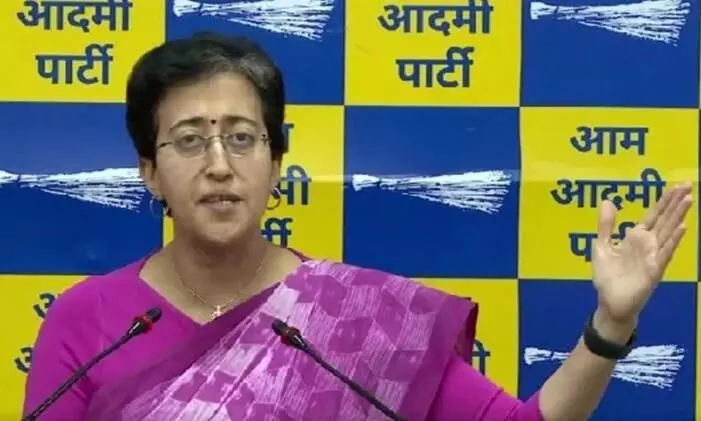
AAP reacts to Sanjay Singh's bail, "probe agency had no answer"
text_fieldsNew Delhi: Aam Aadmi Party (AAP) leader, Atishi, emphasized today that the recent Supreme Court hearing, leading to the bail of party member Sanjay Singh, validates several of the party's assertions.
A key point highlighted was the Enforcement Directorate's failure to trace the alleged bribe money or establish its trail in the ongoing investigation into the alleged liquor scam.
This aligns with AAP's repeated claims regarding the lack of progress in the probe. Additionally, concerns over witness coercion were indirectly addressed during the hearing.
The central agency has apprehended several leaders in connection with the case, including Delhi Chief Minister Arvind Kejriwal and Bharat Rashtra Samithi's K Kavitha. Atishi reiterated the court's inquiry into the absence of a money trail during today's proceedings. She emphasized, "A search for that money trail has been on for the last two years. Today, when the court asked, the Enforcement Directorate had no answer."
Sanjay Singh's bail was granted after the court questioned his prolonged detention without trial or the recovery of the alleged bribe money. The bench observed that no substantial evidence had been recovered regarding the purported ₹100 crore bribe received by AAP. Moreover, concerns were raised about witness manipulation to implicate AAP leaders, suggesting the reliance on false testimony to build the case.
The Supreme Court noted discrepancies in the statements of Dinesh Arora, an accused-turned-approver, particularly his initial failure to implicate Sanjay Singh. Senior advocate Abhishek Manu Singhvi highlighted the evolution of Arora's statements over time, questioning the reliability of his claims. Singhvi emphasized the misuse of Arora's later statement, which led to Singh's arrest, indicating a potential misinterpretation of events by the Enforcement Directorate.
Singh's bail was granted under Section 45 of the Prevention of Money Laundering Act, which may work in his favor in future proceedings. This section allows the court to release the accused if it is convinced of reasonable grounds for their guilt or likelihood to commit further offenses.





